 I put this off as long as I could, but this finale was waiting out there, calling my name. I waited not because Seirei no Moribito’s ending is anything less than the equal of the entire series, but because I know from experience what it does to me emotionally. And of course, because it means saying goodbye to the series again for a while. And finally, because I dreaded the idea of writing about it. I always worry over writing over anime which is truly brilliant, knowing full well how difficult it will be to add anything of value with my clumsy prose. But we’re talking about the best the medium has ever been here, which makes the task that much more daunting.
I put this off as long as I could, but this finale was waiting out there, calling my name. I waited not because Seirei no Moribito’s ending is anything less than the equal of the entire series, but because I know from experience what it does to me emotionally. And of course, because it means saying goodbye to the series again for a while. And finally, because I dreaded the idea of writing about it. I always worry over writing over anime which is truly brilliant, knowing full well how difficult it will be to add anything of value with my clumsy prose. But we’re talking about the best the medium has ever been here, which makes the task that much more daunting.
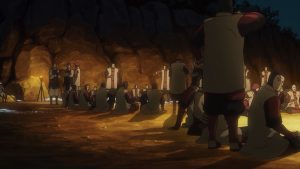 I don’t know what to say about this series at this point, to be honest. I’ve written over 100,000 words on it if you include my sequel novel, but never written about it episodically before now. The ending itself? I mean, it’s perfect. And devastating. The great rule of endings is that they work best when they aren’t “climaxes”. Great series do that in the penultimate episode, leaving the finale to be a kind of coda – a lesson far too many good anime choose to ignore. With characters this gloriously indelible, anything less than a full episode for goodbyes – theirs and ours – would have been a travesty.
I don’t know what to say about this series at this point, to be honest. I’ve written over 100,000 words on it if you include my sequel novel, but never written about it episodically before now. The ending itself? I mean, it’s perfect. And devastating. The great rule of endings is that they work best when they aren’t “climaxes”. Great series do that in the penultimate episode, leaving the finale to be a kind of coda – a lesson far too many good anime choose to ignore. With characters this gloriously indelible, anything less than a full episode for goodbyes – theirs and ours – would have been a travesty.
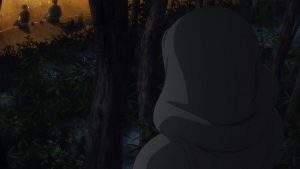 The funny thing is that I always knew that the thing I wanted most in my heart – Balsa, Chagum and Tanda being together forever – could never happen. Seirei no Moribito has always been true to its core themes, and the characters true to their essential natures. Chagum was never going to shirk his responsibilities, because he simply doesn’t do that. He accepts every burden places on him. He has his moments of despair about it – he is a child after all – and leans heavily on those he loves and who love him for support. But he never runs away or takes the selfish path. And sadly enough, his responsibilities are clear here.
The funny thing is that I always knew that the thing I wanted most in my heart – Balsa, Chagum and Tanda being together forever – could never happen. Seirei no Moribito has always been true to its core themes, and the characters true to their essential natures. Chagum was never going to shirk his responsibilities, because he simply doesn’t do that. He accepts every burden places on him. He has his moments of despair about it – he is a child after all – and leans heavily on those he loves and who love him for support. But he never runs away or takes the selfish path. And sadly enough, his responsibilities are clear here.
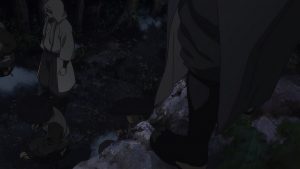 It’s cruel indeed that such a heavy burden should be placed on a child, much less one as noble and full of simple decency as Chagum. It’s only through the intervention of the Hunters, who’ve come to respect Balsa beyond all measure, that Chagum’s grief wasn’t far worse. Balsa was aware that assassins were trailing the return party, but that confrontation would have been brutal for Chagum. Almost as brutal as being forced to part with Balsa, Tanda and Torogai without a proper farewell – which the Hunters’ intervention (and possibly that of his mother and Shuga) made possible.
It’s cruel indeed that such a heavy burden should be placed on a child, much less one as noble and full of simple decency as Chagum. It’s only through the intervention of the Hunters, who’ve come to respect Balsa beyond all measure, that Chagum’s grief wasn’t far worse. Balsa was aware that assassins were trailing the return party, but that confrontation would have been brutal for Chagum. Almost as brutal as being forced to part with Balsa, Tanda and Torogai without a proper farewell – which the Hunters’ intervention (and possibly that of his mother and Shuga) made possible.
 There are two key moments of the finale, ones which speak volumes about the characters involved. The first is when Balsa offers to “cause a commotion” and have Chagum run away with her, an offer she makes knowing the boy will never accept. By doing so, she reassures Chagum that she would and will always be willing to do anything for him, he need only ask her. And by making the offer, she helps Chagum come to terms with what he has to do, no matter how painful.
There are two key moments of the finale, ones which speak volumes about the characters involved. The first is when Balsa offers to “cause a commotion” and have Chagum run away with her, an offer she makes knowing the boy will never accept. By doing so, she reassures Chagum that she would and will always be willing to do anything for him, he need only ask her. And by making the offer, she helps Chagum come to terms with what he has to do, no matter how painful.
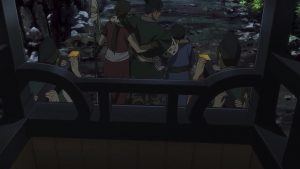 The second, of course, is when Chagum asks Balsa to call him by his name one last time – to say “Sayonara, Chagum”. Those are words that must literally sustain him for the rest of his life. He needs to know that in a future of being the crown prince, the child of Heaven, the great hero Torgal reborn, there are still people who love him for who he is rather than what he is. Especially one person, who he loves more than anyone in the world, even his own mother. Chagum’s feelings are so beautifully expressed in the ED song “Beloved” (which I took as the title of my Moribito novel for that reason) – the true meaning of which only comes into focus with the events of the final episode.
The second, of course, is when Chagum asks Balsa to call him by his name one last time – to say “Sayonara, Chagum”. Those are words that must literally sustain him for the rest of his life. He needs to know that in a future of being the crown prince, the child of Heaven, the great hero Torgal reborn, there are still people who love him for who he is rather than what he is. Especially one person, who he loves more than anyone in the world, even his own mother. Chagum’s feelings are so beautifully expressed in the ED song “Beloved” (which I took as the title of my Moribito novel for that reason) – the true meaning of which only comes into focus with the events of the final episode.
 Essentially, for all its complexity and depth, Seirei no Moribito comes down to the feelings of these two people – Balsa and Chagum. Simple and profound at the same time, the elusive hallmark of great fiction, exemplified here. A mother’s love for her child starts us on this journey, but the love of Balsa and Chagum for each other is even more powerful, because Balsa chooses to prioritize this boy who isn’t her child above all else. She never stops thinking of him, or he of her – and of Tanda, who Chagum never stops trying to bring together with Balsa to share the future he can never be a part of.
Essentially, for all its complexity and depth, Seirei no Moribito comes down to the feelings of these two people – Balsa and Chagum. Simple and profound at the same time, the elusive hallmark of great fiction, exemplified here. A mother’s love for her child starts us on this journey, but the love of Balsa and Chagum for each other is even more powerful, because Balsa chooses to prioritize this boy who isn’t her child above all else. She never stops thinking of him, or he of her – and of Tanda, who Chagum never stops trying to bring together with Balsa to share the future he can never be a part of.
 By God, it’s beautiful – a beautiful, terrible sadness. For me, this is the pinnacle of television anime, and it’s not particularly close. I truly feel that in the manner of all great works of art Seirei no Moribito will never fade away, never grow old – its essential truth will eternally preserve it. It seems worth pointing out – and quite fortuitous timing – that Seirei no Moribito is once more available on Blu-ray (via Sentai Filmworks) and streaming (via HIDIVE starting on September 29th). It’s a chance for a new generation to discover it, and in the process discover just how great anime can be at its absolute best.
By God, it’s beautiful – a beautiful, terrible sadness. For me, this is the pinnacle of television anime, and it’s not particularly close. I truly feel that in the manner of all great works of art Seirei no Moribito will never fade away, never grow old – its essential truth will eternally preserve it. It seems worth pointing out – and quite fortuitous timing – that Seirei no Moribito is once more available on Blu-ray (via Sentai Filmworks) and streaming (via HIDIVE starting on September 29th). It’s a chance for a new generation to discover it, and in the process discover just how great anime can be at its absolute best.
 That would have been a good way to end this piece no doubt, and I probably should have. But I feel as if I should close with something more personal, even though I find it incredibly difficult to put into words what Seirei no Moribito means to me. That was what Beloved was all about, really – me trying to express my love for this incredible work of art, and my gratitude to those who created it for giving me something that would stay with me for the rest of my life. I’m forever in their debt, because to love something as much as I love this series is a rare and precious thing.
That would have been a good way to end this piece no doubt, and I probably should have. But I feel as if I should close with something more personal, even though I find it incredibly difficult to put into words what Seirei no Moribito means to me. That was what Beloved was all about, really – me trying to express my love for this incredible work of art, and my gratitude to those who created it for giving me something that would stay with me for the rest of my life. I’m forever in their debt, because to love something as much as I love this series is a rare and precious thing.


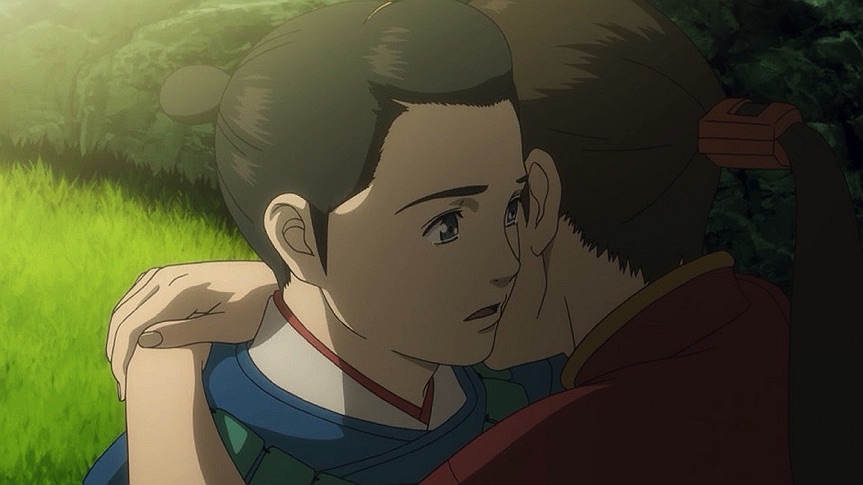
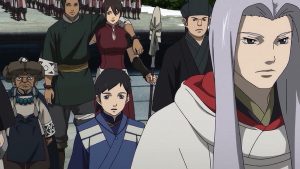


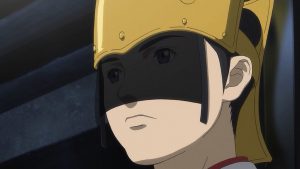
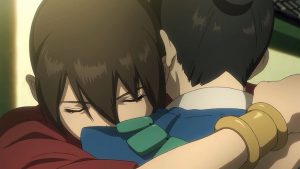
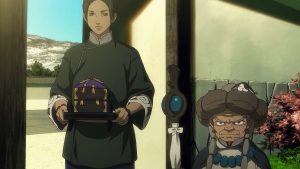
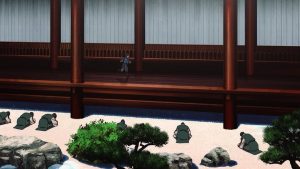




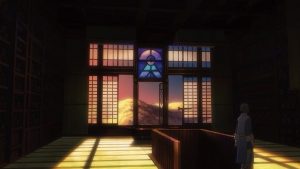

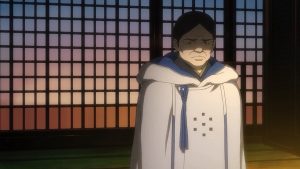

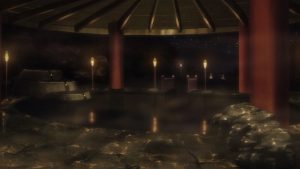
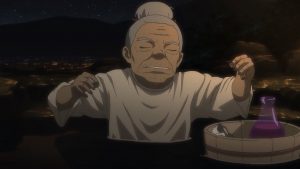
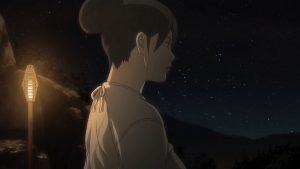
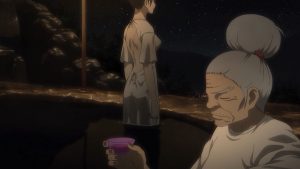
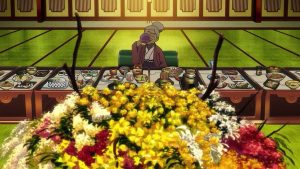
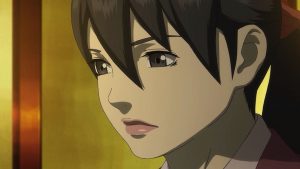


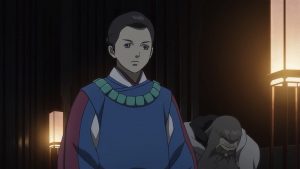
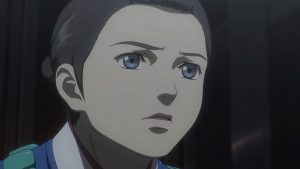
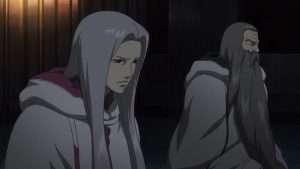
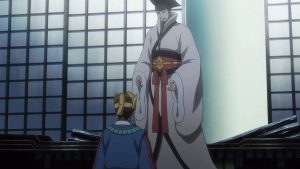

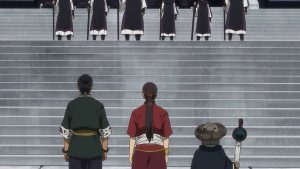

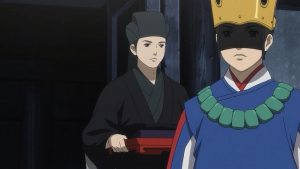


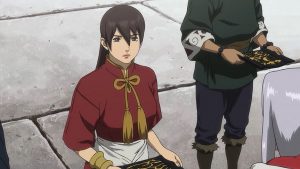
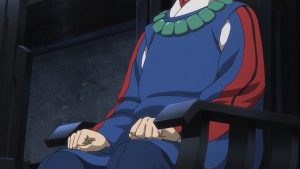


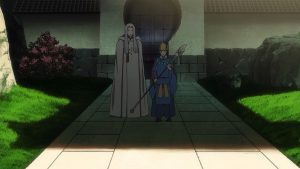
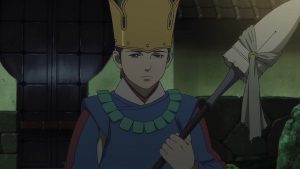
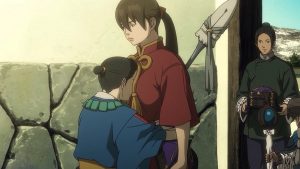
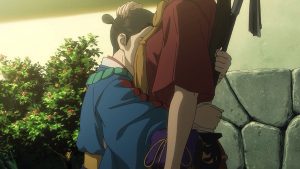
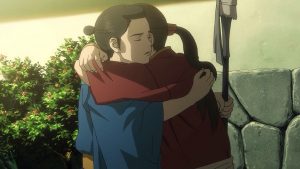
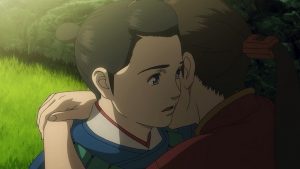
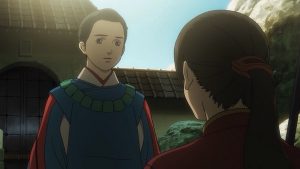

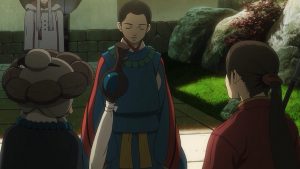

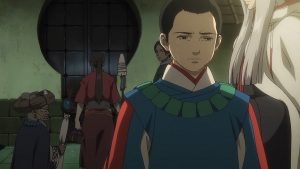
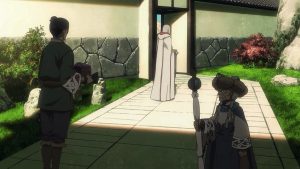

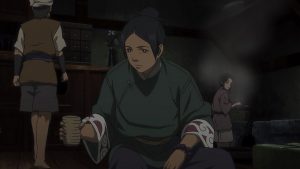
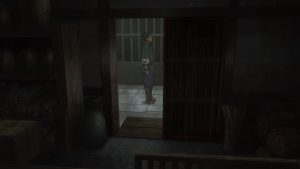



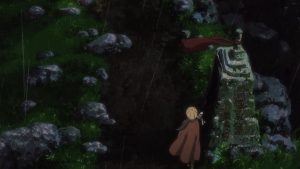

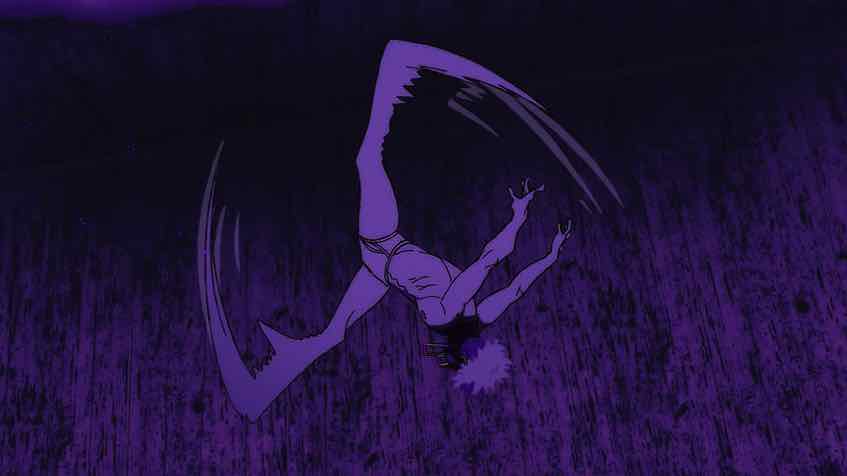
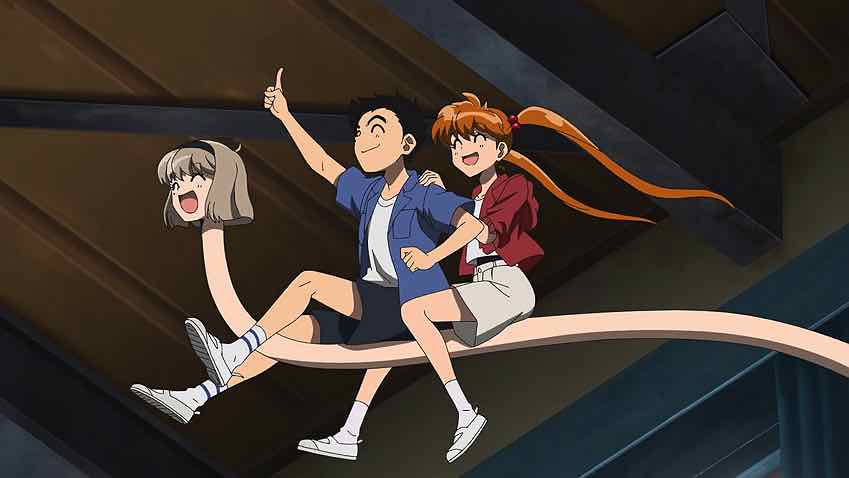
Panino Manino
September 28, 2020 at 10:41 amYou took so long to finish that I gave up.
Guardian Enzo
September 28, 2020 at 3:45 pmI promised myself I would wait until the moment was right, and it took a while for that to happen. I waited 13 years to blog it – I wasn’t about to rush the ending.
Raikou
September 28, 2020 at 12:54 pmYou finally finished it.
I finally watched it after reading your review, and I must say, this is a very satisfying anime. Kamiyama Kenji really going all out. There really is a difference when the director is handling all the scripts each episode.
The journey is fulfilling, all the characters are well written, and the world building is amazing
If only recent years have an anime this quality again..
Also, watching this has some nostalgic feeling for the seiyuu because Tsujitani Kouji and Fujiwara Keiji has gone, and hearing both of them is kinda comforting.
Thank you for this wonderful review, Enzo.
Guardian Enzo
September 28, 2020 at 3:44 pmFirst of all, thanks very much.
We lost both those wonderful seiyuu far too soon – in Tsujitani’s case it was completely unexpected as well. I really view Moribito as a one-off, a true labor of love that could never be repeated. Kamiyama has never come close to this level, but his work here is astonishing. Every script, most of the storyboarding, direction – and let’s not forget, he added so much to the source material that the anime is almost an original story.
Elia Notari
September 28, 2020 at 7:52 pmThanks for everything Enzo, sincerely
Thomas
March 12, 2022 at 6:15 amThank you for your love of the anime. I love it too.
Guardian Enzo
March 12, 2022 at 9:13 amMy #1 all-time!
Shirin
January 15, 2024 at 9:42 pmNot you making me cry over your two key moments (which are of course also mine). It’s just so heartbreaking watching Chagum and Balsa leaving each other, thinking they’ll never see each other again.
I feel truly devastated each time I finish the anime and am so incredibly grateful to Anikki the Archivist who translated all books after Guardian of the Darkness. (Currently on book 4)
I think I have watched the anime 3 times this month alone. When my TV is on, Moribito is on. Specific episodes I have watched even more times (Episodes 3-7 as an example)
Guardian Enzo
January 15, 2024 at 9:49 pmYes, those translations were a Godsend.